What happens to my child after high school?
Far from being over, the adventure has only just begun!
A whole array of educational programs, one more interesting than the next, are now accessible….
What are the possible choices?
Vocational, pre-university college or technical training education, and even adult education are all possible avenues for your child.
Some young people decide to take a break after high school to work and acquire experience in the job market. According to Statistics Canada, research in the United States suggests that interrupting their studies may hinder eventual completion of post-secondary studies, as many students who take time off simply do not return to school. On the other hand, young people who pause their studies to acquire work experience have an advantage when they arrive on the job market because this allows them to develop employability skills.
What you can do as a parent
While you do not have the power to decide on behalf of your child, you can encourage them to establish a career plan that corresponds to their interests and abilities.
By demonstrating a real interest in their future you are increasing the chances that they will be open to your suggestions and recommendations.
You can also consult a guidance counsellor or visit an employment agency such as a Carrefour jeunesse-emploi with them to discuss their goals and make enlightened choices regarding their future.
If your child officially decides to enter the job market, you should continue to encourage them. Some young people prefer this concrete type of life experience that offers them more independence.
Who knows? They might want to return to school one day and you’ll be right there to support them in the next transition.
To read: Demystifying working conditions to better protect young workers (in French)
For most young people, starting cégep (or vocational training) is a chance to reaffirm their autonomy, and experience big changes and the expansion of their social networks. The same way your child made the journey from elementary to high school, the transition from high school to college or vocational training is an important stage in their life.
While some students experience this transition without issue, others are worried, and the journey becomes a source of great anxiety.
Freedom, at last?
Many students see their entry into cégep as a new life marked by certain new freedoms (reduced course hours, apartment living, more socializing), but the impression is misleading. Even if the class hours are less imposing, the hours of studying and homework are more numerous, and the schedules are more varied. Structure is also a lot less present and independence is valued and encouraged.
Also, for some students, apartment living brings with it a slew of responsibilities that they did not expect, or at least did not plan for to any great extent (having roommates, chores, meal preparation, bills to pay, etc.). It is therefore important that they continue to have your support during this transition.
Some tips
- Discuss what they think of the transition to post-secondary studies.
- Visit the cégep with them and try to meet with student service representatives.
- Inform your child about assistance services in all colleges.
- Be on the lookout for changes in their behavior (loss of interest, laziness, absenteeism), and talk about it without judging (or punishing) while continuing to demonstrate openness.
- Encourage casual discussions (e.g., in the car: they will feel less like they are being interrogated than in formal face-to-face discussions).
- Even if you no longer have access to their school record, you can still stay informed about your child by showing sincere interest in their progress and study choices.
- Remain open-minded about their chosen field of study: it often happens that it doesn’t really correspond to their interests and abilities. It is important and sometimes justified however, to reconsider their choice. A guidance counsellor or academic adviser at cégep can assist them.
Did you know that parents can do a lot to help their child balance work and school?
Adolescents and young adults may need help or advice to manage their time that established their priorities from day to day. It’s important to help them understand that their studies are a priority and it’s essential to make all the efforts required. A diploma remains their best investment. Did you know that just like those that practice sports intensively, a lot of young people who have paid employment perform well in their studies?
Watch for the signs!
However, there is a growing risk of facing difficulties in school or quitting their studies for working students when:
- Their job prevents them from devoting the necessary time to their schoolwork.
- The intensity of their paid work increases during their exam periods.
- They are missing classes because of their job.
- They are prolonging their studies to reconcile work and school.
- Their grades are weak, and they are lacking motivation in their schoolwork.
Source : CRÉPAS http://www.crepas.qc.ca/
Video Capsules
- Mme Nadia Lapointe, conseillère d’orientation de la CSRS La conciliation, un projet qui fonctionne! (in French)
- Témoignage d’un élève de l’école du Triolet Savoir trouver l’équilibre! (in French)
- Présentation du Programme Conciliation études-travail de Sherbrooke La persévérance scolaire, c’est l’affaire de tous! (in French)
